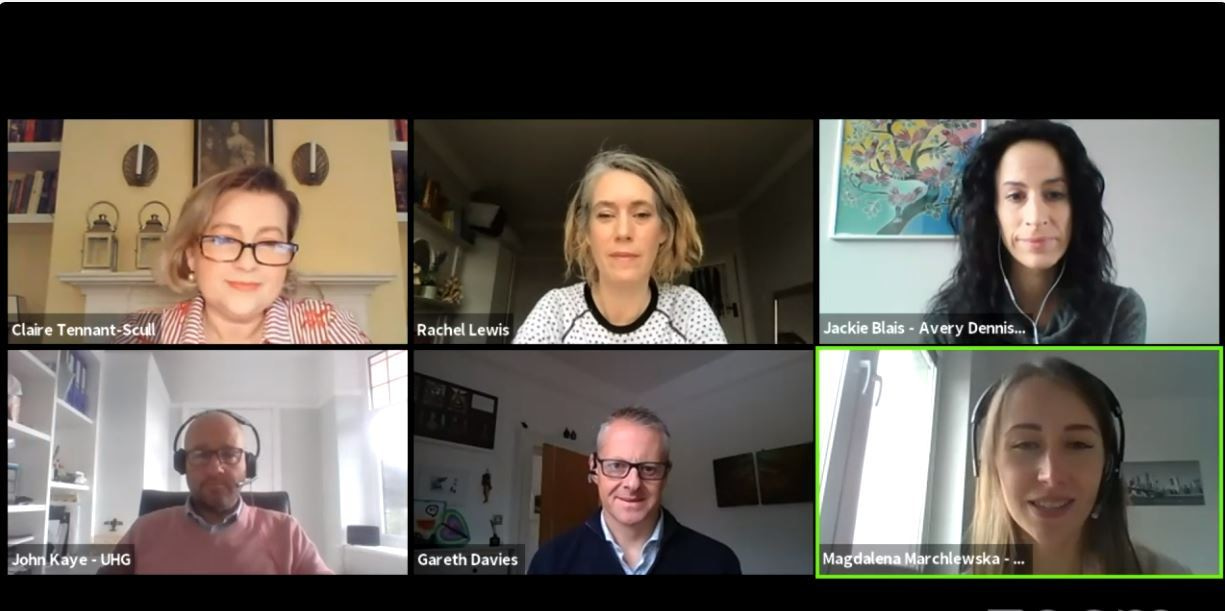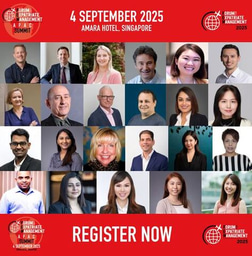Employee Experience in the ‘New Normal’ - Q&As with the panel

Day Two of FEM's EMEA Online Summit and we asked our panel: How meaningful is the term, ‘employee experience’ in the context of all the disruption caused by the Covid pandemic and its economic consequences?
Our panel was comprised of:
- Jackie Blais, Senior Manager of Global Mobility, Avery Dennison
- Gareth Davies, VP Technology Solutions, Equus Software
- John Kaye, Market Development Director, UnitedHealthcare Global
- Rachel Lewis PhD, CPsychol Director, Affinity Health at Work and Birkbeck, University of London
- Magdalena Marchlewska, Global Mobility Account Manager, The Coca-Cola Company
You can watch the recorded video of all Day Two sessions by clicking on the link here:
FEM EMEA Online Summit - Day Two
We also collated the questions that attendees posted in the Chat function and our speakers have kindly added their answers here:
Focus Panel Discussion: Employee Experience in the ‘New Normal’
Q. How do you see technology playing a role in improving the employee experience?
Jackie Blais: Extremely important from both the Global Mobility side (being able to use technology to assess and improve the employee experience) and also from the employee side - for example, most assignees want to have easy and immediate access to view everything related to their relocation/assignment in one place like an app so we need to keep up with the times on the technology front.
Magdalena Marchlewska: I also see the role of technology in improving the experience when it comes to pure relocation, especially from COVID-19 perspective. Technology allow our assignees to pick their new houses thanks to e-viewings or even to assess their goods for shipment which normally requires the whole bunch of people going around your house.
Gareth Davies: The technology possibilities are significant. At the operational level, utilising automation and workflow to streamline the delivery of GM transactional services will free up significant time (and cost) to be able to deliver more strategic advisory services to the business and a greater level of support or solutions to your mobile populations. Dedicated employee portals can ensure they have a single online solution to access all their documentation, services and contacts, we able to make elections and choices, raise service requests and potentially exceptions, to communicate with GM and other key stakeholders as well as see their tasks, surveys and service status updates as they happen in a live environment. Of course nothing can beat the personal touch, but technology is a huge enabler to ensure connectivity with and full transparency is delivered.
Rachel Lewis: Technology is absolutely vital for the employee experience, and for some who are away from family and friends, it is a necessity for maintaining and protecting mental health. Unfortunately research has shown that still some rotational workers (for instance those in the maritime industry) do not have access to the internet whilst on-rotation. Although research suggests that technology enables many jobs to be conducted away from the workplace, research suggests that employees cite two elements of roles that they are less confident about conducting virtually and these are employee onboarding and client meetings. Consideration must given to alternative technologies to enhance user experience in these areas.
Q. Should we screen employees for mental health problems?
Jackie Blais: This will be a bit tricky I think to call out mental health problems, but could be something to consider when doing a pre-decision assessment to see if the candidate is the right fit for an assignment.
Magdalena Marchlewska: Some legislations require obligatory medical check up to start the employment, and mental health is just as important as our physical health, so I would be happy to see more attention paid to mental health. I think it will require significant change in people’s mindset though, especially with regards to prevention but I can already see some companies introducing well-being programs so I hope this will become a core element of the employment/benefit packages.
Gareth Davies: The sensitivity of this matter has already been said. From a Data Privacy perspective - it goes without saying that medical or health data should not be capture in a mobility technology platform.
Rachel Lewis: I think mental health should be part of pre- and post- assignment checks in the same way as physical health is. Commonly at the moment these checks involve asking about medication use. There is room for a psychometrically developed tool that would identify psychological risks for the mobile workforce. In this way, both employees and employers could have informed discussions and make reasonable adjustments accordingly.
Q. With regards to the employee experience, how are you gathering and measuring any feedback? Have you any data in this area to share with the business?
Jackie Blais: Besides just normal "check-in" emails, I send out annual surveys to collect feedback and I do share this with the business.
Gareth Davies: At Equus, our AssignmentPro system allows Employees to raise ‘Requests’ – for instance to ask for a 1:1 meeting with GM to discuss their current challenge or experience. Pulse surveys can also be pushed out the all mobile employees for general well-being check-ins or to elicit feedback on services etc.
Q. Do you think that assignees will feel more or less loyalty to their organizations after Covid?
Jackie Blais: I hope they will feel more loyalty knowing that we were really there supporting them during this challenging time.
Magdalena Marchlewska: I hope we will see more loyalty as the assignees will appreciate the level of support the organization offered, especially in the times when so many people lost their jobs all around the world.
Gareth Davies: Very similar sentiments per above – it seems employers are really going to great lengths to provide support and solutions to their mobile employees during these challenging days. I hope these efforts and the spend is recognised by employees.
Rachel Lewis: If an organisation has been extending an exemplary level of support to assignees during Covid, I would expect that this would be the case. I would however caution against ’socially desirable’ loyalty where employees appear more loyal (or where loyalty doesn’t appear to have changed), out of fears for their job and financial security.
Q. Do you think that the mobility industry will see a return to relying on smaller ‘on the ground’ DSPs etc?
Jackie Blais: We have always relied quite a lot on local DSPs to assist with on the ground support and I do not see this changing any time soon.
Q. Duty of care (for the whole family) is on the agenda of every conversation with our clients. How do you see this being adopted and actioned by GM leaders?
Jackie Blais: Duty of care and employee experience I think will be even more important after COVID now that we've seen the impact it can make for our employees and their families so I think this will remain one of the primary focus areas for many GM leaders. We will need to make sure that all of the attention we are paying to it now gets continued in the future by keeping up with the support, the check-ins, the surveys, the extra TLC, etc.
Magdalena Marchlewska: I think nowadays when organizations are looking for ways to attract and retain talent, duty of care and paying attention to the assignees’ needs/expectations will be inevitable way of getting the right people with the right skills in the right role (and thanks to GM, in the right location!).
Gareth Davies: In fairness, most Organisations and GM leaders have always provided this Duty of Care to their employees long before Covid-19 days – it was just that the topic and prominence of that support model was less explicit of de-prioritised in the minds of assignees. It should have been and always should be an explicit and key focus!
John Kaye: COVID has presented many challenges for global mobility to react to- however the priority surely now moves to the reassessment of our processes and support mechanisms in the context of what are now known risks. As could be seen being represented in the panels and interviews today, many of the services (and technologies!) to support this review process and also provide solutions exist and are proven, whether that be in the areas of planning and risk assessment, travel risk security or the proactive management of mobile populations’ physical and mental health. The insight businesses gain for their from global mobility professionals will no doubt play a strong part in pushing this “up the agenda”. It may take a little more time for the culture of some organisations (in how they look at employee wellbeing) to truly catch up but I think there are encouraging signs in many areas.






Please sign in or register for FREE
Sign in OR sign up to become a registered The Forum for Expatriate Management website user
Subscribe here